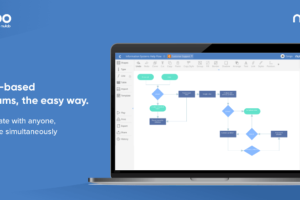Why the Shift Is Happening
Recent Google algorithm updates, especially the September 2025 rollout, have caused extreme volatility and loss of rankings for up to 40% of websites, rendering old SEO strategies obsolete and sometimes even harmful.
AI-driven search (including Google’s own AI Mode, ChatGPT, and Perplexity) is reducing traditional organic click-through rates, as users get answers directly from summaries rather than website links, slashing the value of traditional SEO.
Marketers are reporting decreased ROI from Google-focused SEO and are seeking “generative engine optimization” (GEO) and multi-platform brand strategies to stay visible outside Google.
What Agencies Are Advising
Treat Google search traffic as a bonus, not a guaranteed or primary channel.
Invest in channels directly controlled by brands like email, direct social media engagement, video platforms, AI search optimization, and building brand mentions within AI-generated content.
Shift focus from old keyword and backlink tactics to optimizing for AI citation, structured data, and multi-platform visibility.
This new direction signals a major transformation in digital marketing and SEO strategy for 2025 and beyond, as agencies and businesses race to adapt to an ecosystem where Google is no longer king.
What risks do clients face if they ignore Google
Ignoring Google as a search platform presents considerable risks for clients, particularly those reliant on digital visibility and customer acquisition. Despite the current shift in SEO strategies, excluding Google from a marketing or brand strategy exposes organizations to several downsides.
Key Risks for Clients
-
- Loss of Significant Web Traffic: Google remains the largest search engine by a wide margin. Ignoring Google could mean missing out on a primary source of website visitors, reducing brand reach and potential sales dramatically
- Decreased Discovery by New Customers: Many consumers still begin their research on Google. Without a presence there, brands may lose the opportunity to be discovered by new audiences actively searching for related products or services.
- Competitive Disadvantage: Competitors who continue to optimize for Google can capture market share, appear more authoritative, and accrue more visibility, directly at the expense of businesses opting out.
- Loss of Trust and Credibility: Consumers may perceive non-Google-indexed brands as less credible or established. Many users check Google business reviews and reputation as part of their decision-making process.
- Reduced Brand Authority: Search engine visibility often translates to perceived leadership in a niche. A lack of Google presence can diminish brand authority and recognition across the web.
- Limited Data and Analytics: Google Search Console and Google Analytics offer in-depth insights into user behavior. Ignoring Google could limit a company’s ability to analyze performance and refine strategies effectively.
- Long-Term SEO Penalties: If a business decides to return to Google in the future, regaining previous ranking and authority levels can be difficult and slow after a period of inactivity or neglect.
Privacy and Compliance Considerations
-
- Potential Privacy Risks: Relying exclusively on Google has been criticized for increased data collection and potential privacy issues. However, not using Google means clients must find other reputable channels and ensure privacy compliance is not compromised elsewhere.
Ignoring Google poses severe risks regarding reach, competitiveness, credibility, and long-term growth prospects, despite the trend towards broader digital marketing channels.
A Balancing Act
What we’ve been doing around here is venturing more into other channels. Google just doesn’t pull the weight that it used to since the advent of these AI utilities (LLM’s). Optimization can still be a thing as long as you don’t spend too much of your capital optimizing for just Google.






